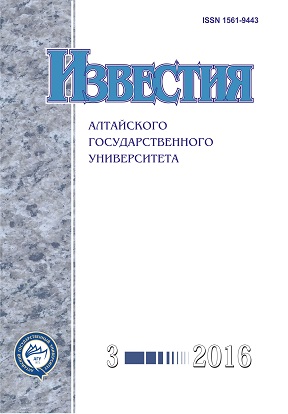Prevention of Extremism and Terrorism Carried Out with the Help of the Internet
Abstract
The article analyses the reasons for the trends of extremism and terrorism committed via the Internet. The research is made of the forms of the Internet use for terrorist and extremist purposes, in particular, conspiratorial communication between members of these communities, the recruitment of new members, remote control of such criminal communities and collection of funds for criminal purposes. Analysis is given of the problem of the Internet use by criminals to study the public opinion and the psychology of people with social intolerance. The description is given to the trends of criminal activity under study; analysis is made of improving the methods of its implementation. The author comes up with the judgment about the need for a system of forensic measures to prevent such crimes, based on the legal, organizational, technical and methodological measures. A specialized program of crime prevention is offered. The article describes the main activities to be included in it, in particular, identification, fixing and blocking materials of extremist nature. To clarify the mechanisms of such offenses, their trace picture, the identity of these criminals, and other forensically relevant questions, the offer is made to develop and implement the Honeypot research system.DOI 10.14258/izvasu(2016)3-26
Downloads
Metrics
References
Сунами А.Н. Молодежный экстремизм, ксенофобия, интолерантное поведение: конфликтный анализ российского Интернета // Конфликтология. - 2013. - № 1.
Гавло В.К. Следовая картина и ее значение для расследования преступлений, связанных с неправомерным удаленным доступом к компьютерной информации // Российский юридический журнал. - 2007. - № 5 (57).
Осипенко А.Л. Организованная преступность в сети Интернет // Вестник Воронежского института МВД России. - 2012. - № 3.
Поляков В.В. Использование сети Интернет при совершении преступлений против детей // Сборник материалов криминалистических чтений. - 2014. - № 10.
Поляков В.В. Средства совершения компьютерных преступлений // Доклады Томского государственного университета систем управления и радиоэлектроники. - 2014. - № 2 (32).
Осипенко А.Л. Особенности раскрытия преступлений экстремистской направленности, совершаемых в сети Интернет // Преступность в сфере информационных и телекоммуникационных технологий: проблемы предупреждения, раскрытия и расследования преступлений. - 2015. - № 1.
Кудашкин Я.В. Правовые аспекты противодействия терроризму в сети Интернет // Реализация государственной политики по противодействию терроризму и экстремизму в Российской Федерации: основные направления, проблемы и перспективы : материалы Всерос. науч.-практ. конф. «X Державинские чтения в Республике Мордовия» (Саранск, 25 апреля 2014 г.). - Саранск, 2014.
Izvestiya of Altai State University is a golden publisher, as we allow self-archiving, but most importantly we are fully transparent about your rights.
Authors may present and discuss their findings ahead of publication: at biological or scientific conferences, on preprint servers, in public databases, and in blogs, wikis, tweets, and other informal communication channels.
Izvestiya of Altai State University allows authors to deposit manuscripts (currently under review or those for intended submission to Izvestiya of Altai State University) in non-commercial, pre-print servers such as ArXiv.
Authors who publish with this journal agree to the following terms:
- Authors retain copyright and grant the journal right of first publication with the work simultaneously licensed under a Creative Commons Attribution License (CC BY 4.0) that allows others to share the work with an acknowledgement of the work's authorship and initial publication in this journal.
- Authors are able to enter into separate, additional contractual arrangements for the non-exclusive distribution of the journal's published version of the work (e.g., post it to an institutional repository or publish it in a book), with an acknowledgement of its initial publication in this journal.
- Authors are permitted and encouraged to post their work online (e.g., in institutional repositories or on their website) prior to and during the submission process, as it can lead to productive exchanges, as well as earlier and greater citation of published work (See The Effect of Open Access).








